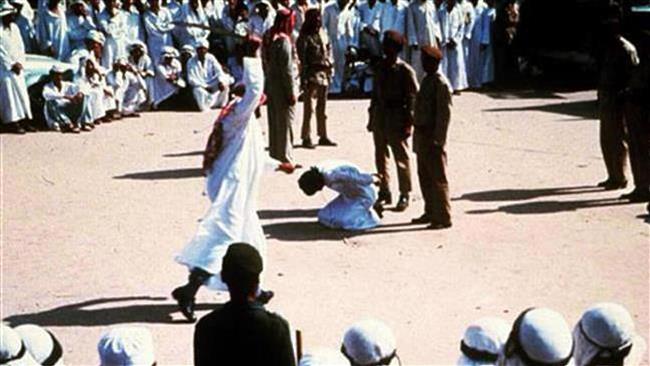
RNA - The Saudi Okaz newspaper reported on Thursday that the 14 men were among 24 people convicted last year of carrying out attacks on police stations in the town of Awamiyah and the city of Seihat, both situated in the Qatif region of the Shia-dominated Eastern Province.
Nine other members of the so-called "Awamiyah Cell" were also sentenced to prison terms ranging from three to 15 years and one was cleared of the charges.
The ruling by the top court is final and will be carried out after it is approved by King Salman.
The Okaz newspaper also reported that the Specialist Penal Appeals Court had upheld the death sentences against 15 people convicted of allegedly spying for Iran.
The case would be referred to the Supreme Court for a last decision.
Saudi Justice Ministry and court officials have not commented on the rulings.
Earlier this week, rights activists and family members of the so-called "Awamiyah Cell" said the defendants had been transferred to the Saudi capital Riyadh, a sign that they would face imminent execution.
"The sentences were based on confessions that the accused had retracted in court, because they were taken by pressure and torture," a Saudi rights activist, who was speaking on condition of anonymity, told Reuters.
On Monday, Amnesty International urged the Saudi king not to ratify the death sentences of the 14 Shia Muslims, saying, "King Salman’s signature is now all that stands between them and their execution.”
Amnesty’s director of campaigns for the Middle-East, Samah Hadid, said the death penalties were the result of “sham court proceedings that brazenly flout international fair trial standards."
“By confirming these sentences Saudi Arabia’s authorities have displayed their ruthless commitment to the use of the death penalty as a weapon to crush dissent and neutralize political opponents,” she added.
At least 66 people have been executed in Saudi Arabia since the beginning of 2017, including 26 in the past three weeks alone.
Since February 2011, Saudi Arabia has stepped up security measures in Eastern Province, which has been rocked by anti-regime demonstrations, with protesters demanding free speech, the release of political prisoners, and an end to economic and religious discrimination.
The government has suppressed pro-democracy movements, but they have intensified since January 2016 when Saudi Arabia executed respected Shia cleric, Sheikh Nimr al-Nimr.
857/940